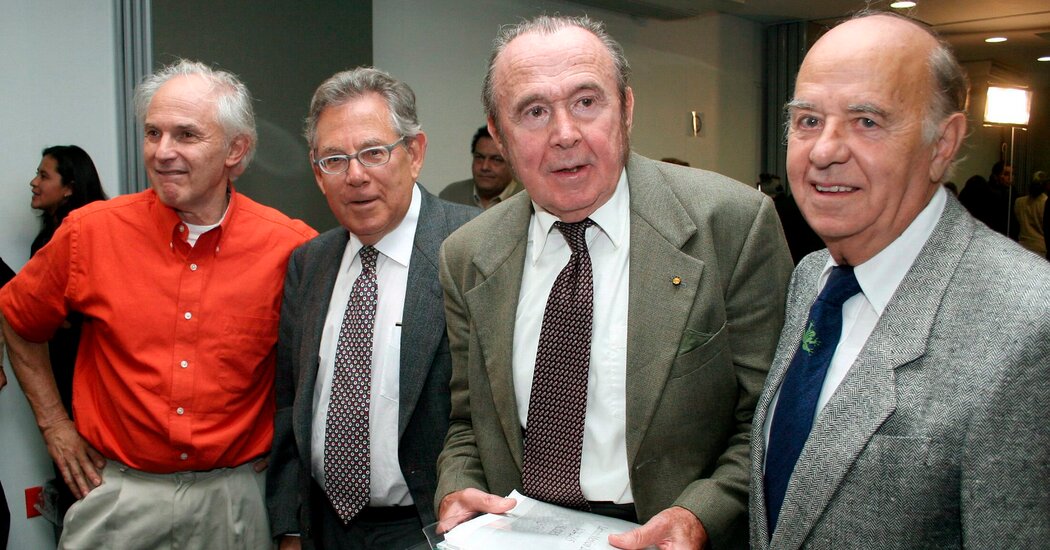His two-decade quest to find elusive brain hormones became a race against Roger Guillemin, a onetime colleague and an eventual fellow prizewinner.
Andrew V. Schally, an endocrinologist who was awarded a Nobel for discovering the hormones used by the brain to control growth, reproduction and other bodily functions, sharing the prize with his bitter rival, the neuroscientist Roger Guillemin, died on Thursday at his home in Miami Beach. He was 97.
His son, Gordon, confirmed the death.
Dr. Schally, a Polish refugee who started out as a research technician, spent much of his career at the Veterans Affairs Medical Center in New Orleans, where he led an intense effort to be the first to find the hormones.
His rivalry with Dr. Guillemin, his onetime colleague, stretched over two decades, ending in a tie in 1977 when each received a quarter share of the Nobel Prize in Physiology or Medicine. (The other half went to Rosalyn S. Yalow, a medical physicist, for unrelated work.) Dr. Guillemin died in February.
Dr. Schally’s discovery was a feat of industrial-style research. Because the brain contains only tiny amounts of hormone, Dr. Schally needed thousands of brains to obtain thimblefuls of the substance to study. A donation of one million pig brains from Oscar Mayer allowed him to put more money into building his scientific team.
Unlike many Nobel-winning endeavors, the research was less the work of one or two people than of the entire group. Dr. Schally purified the hormones and turned them over to structural chemists, who did the tedious analytical work. Though he regularly fought for fair credit from Dr. Guillemin, he was less concerned when a dispute about authorship broke out among members of his team. “What do I care?” Dr. Schally said. “It’s my lab — I get the glory anyway.”
